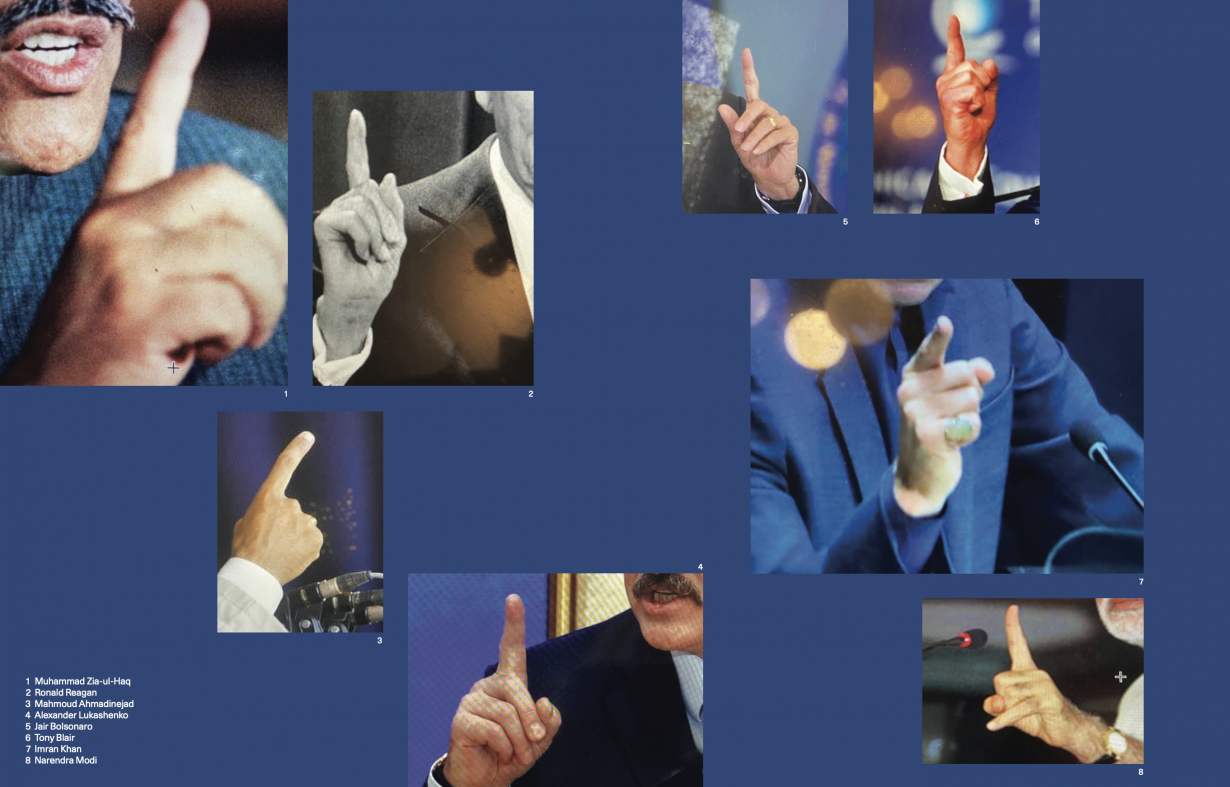The artist’s photographic work The Reassuring Hand Gestures of Big Men, Small Men, All Men (2021) chips away at the art of ‘corporeal eloquence’
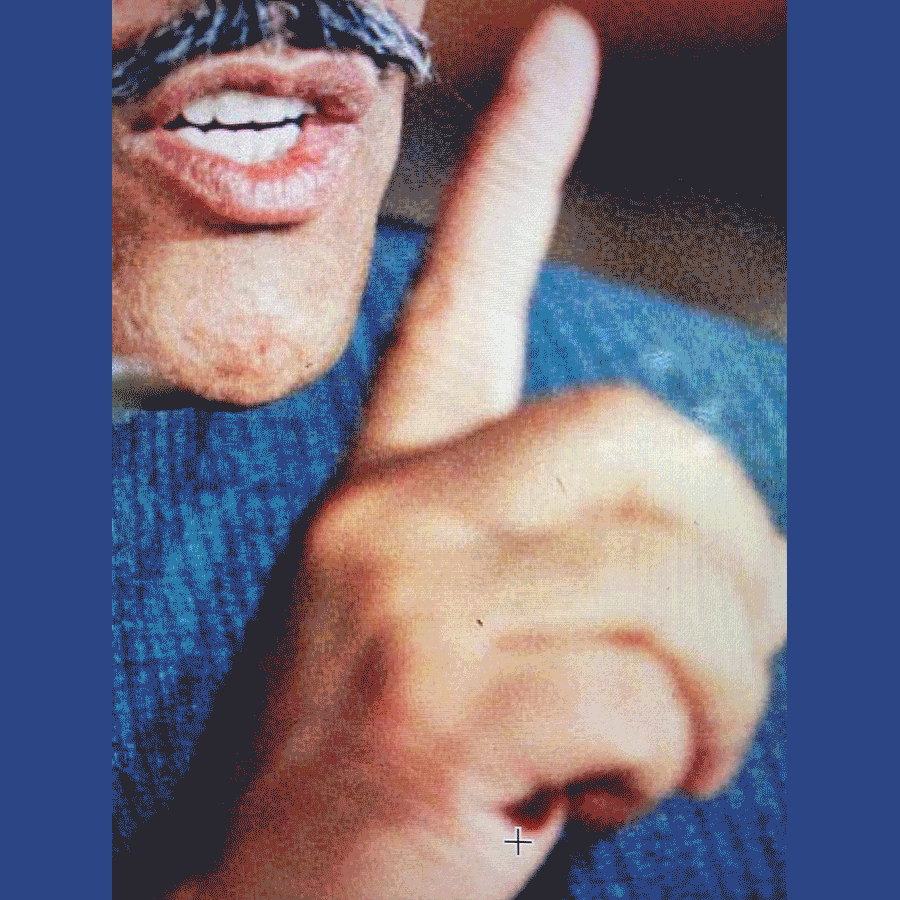
Berlin-based Pakistani artist Bani Abidi’s recent photographic work, The Reassuring Hand Gestures of Big Men, Small Men, All Men (2021), is one that gently chips away at longstanding mythologies of male power. And like those myths, it works by endless repetition, in this case, and as the title suggests, of the hand gestures that have, for millennia, been an essential component of the performance of politics.
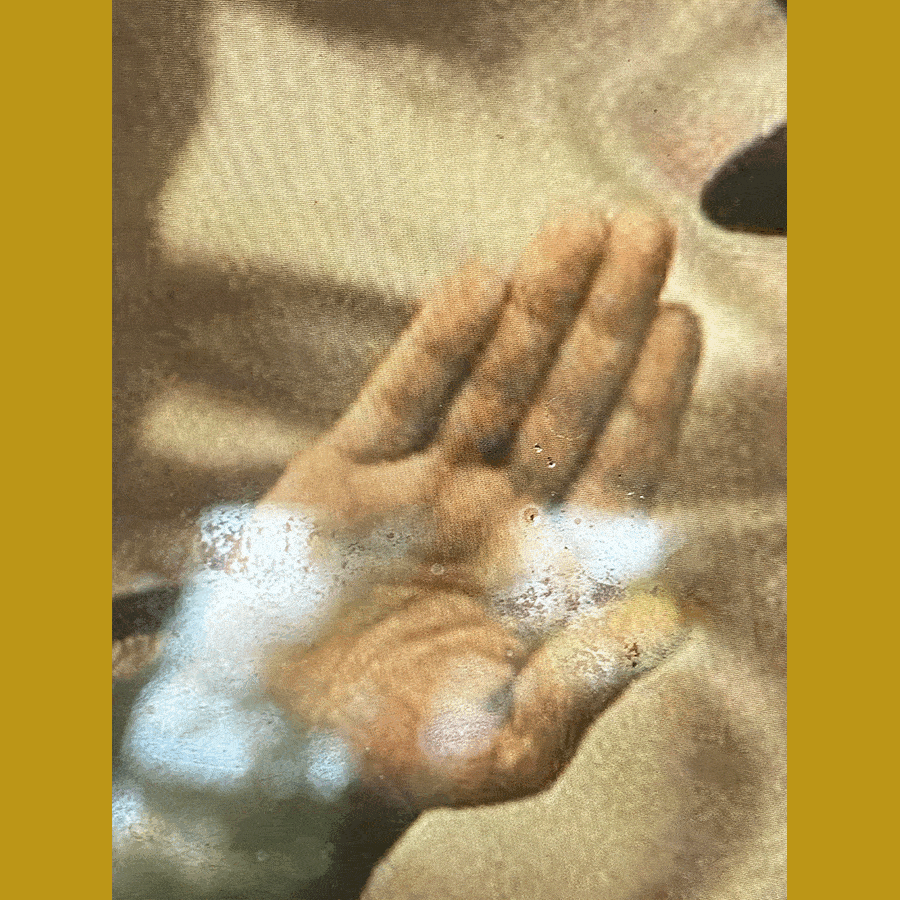
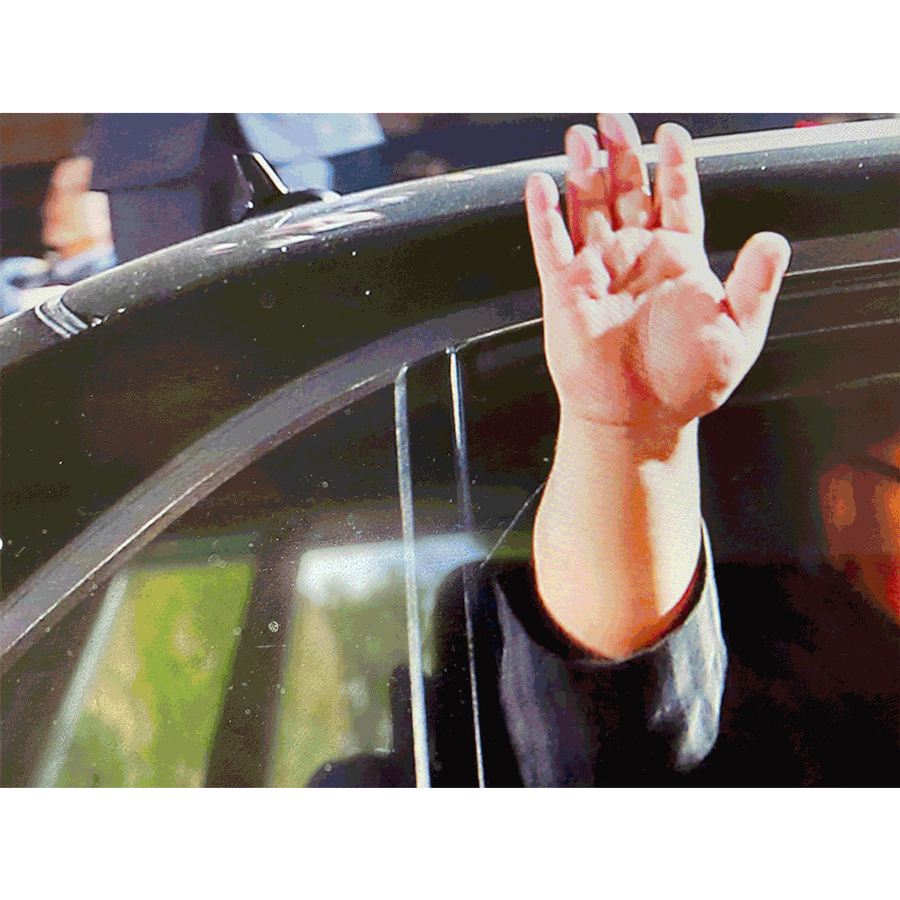
Such gestures are part of what the Roman poet Cicero, in his De Oratorio (55 BCE; but which, in various forms, shaped generations of privately educated Englishmen in the two millennia that followed) described as the art of ‘corporeal eloquence’, one of the many techniques of audience manipulation he reviews, noticeably drawing as much on the politics of the street as he does on the politics of the Senate. But that, in Abidi’s work, comes across as pointless, empty thrusting. Even if pointing itself is one of the primary hand gestures, and the performance of such an action is often a cover for not acting at all. That’s how irony (another of Cicero’s special subjects) works.
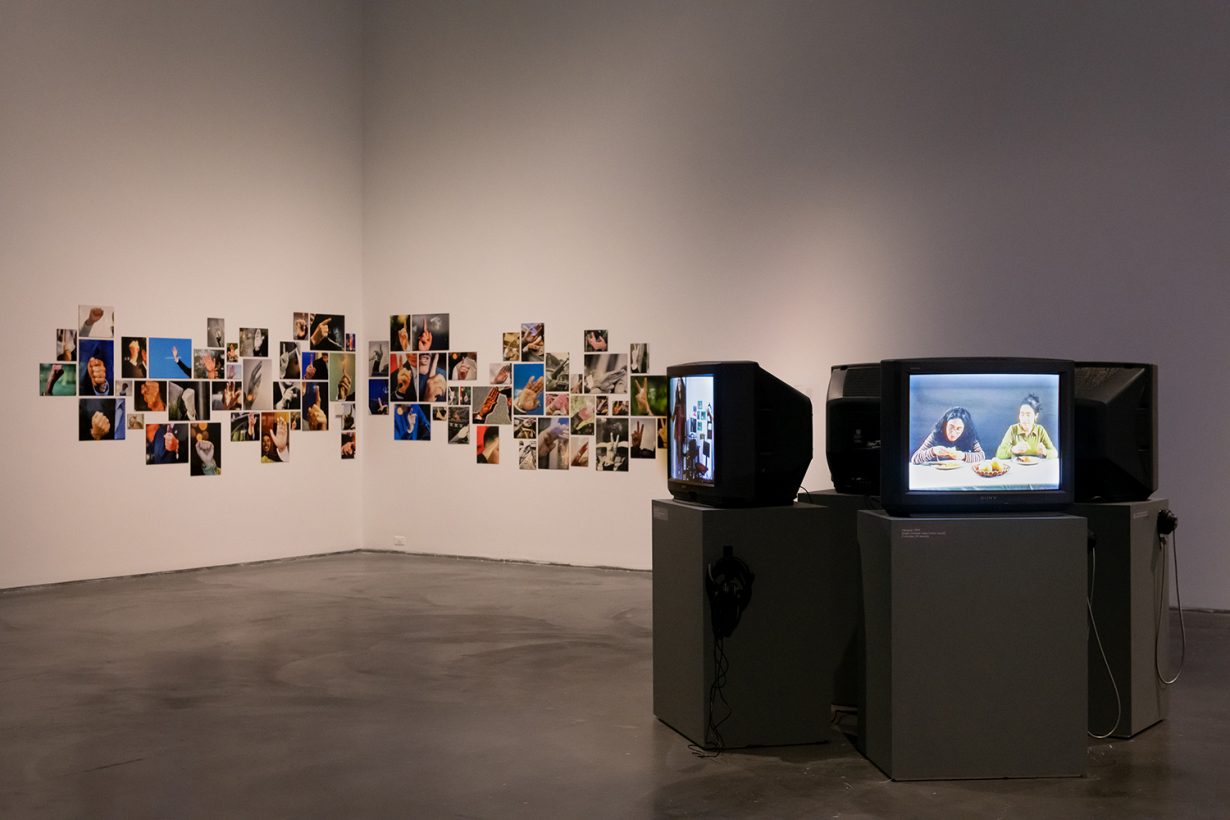
Abidi has deployed her wry humour and keen observation of male engagement in political theatre in general, and the patriarchal politics of Pakistan in particular, in previous works. Death at a 30-Degree Angle (2012), originally shown at Documenta (13) in Kassel, Germany, is a (fictional) vignette set in the studio of Ram Sutar, a sculptor celebrated in India for monumental statues of national heroes and politicians (his 240m-high statue of India’s first deputy prime minister, Vallabhbhai Patel, in Gujarat, was commissioned by the country’s current ruler, Narendra Modi – who features in The Reassuring Hand Gestures… and is reputedly the world’s tallest statue.) In Death at a 30-Degree Angle, a low-level male politician enters the studio and runs through a series of costumes, gestures and poses in an effort to generate the perfect representation (pointing included), while inadvertently revealing all the qualities he seeks (in sculptural form) to conceal: indecisiveness chief among them. Which (the concealing, not the revealing), of course, is precisely what our politicians, in the East and the West have sought to do during the current pandemic. Although New Zealand’s Jacinda Ardern (and her national broadcasts from home while putting her children to bed) might be a notable exception to this. But, then again, she’s not a man. Death at a 30-Degree Angle ultimately transforms into a dialogue (the format also of De Oratorio) between subject and artist about ideal representations of a politician. A discussion about rhetoric rather than action and representation rather than reality. In many ways a summary of politics worldwide in the present day.
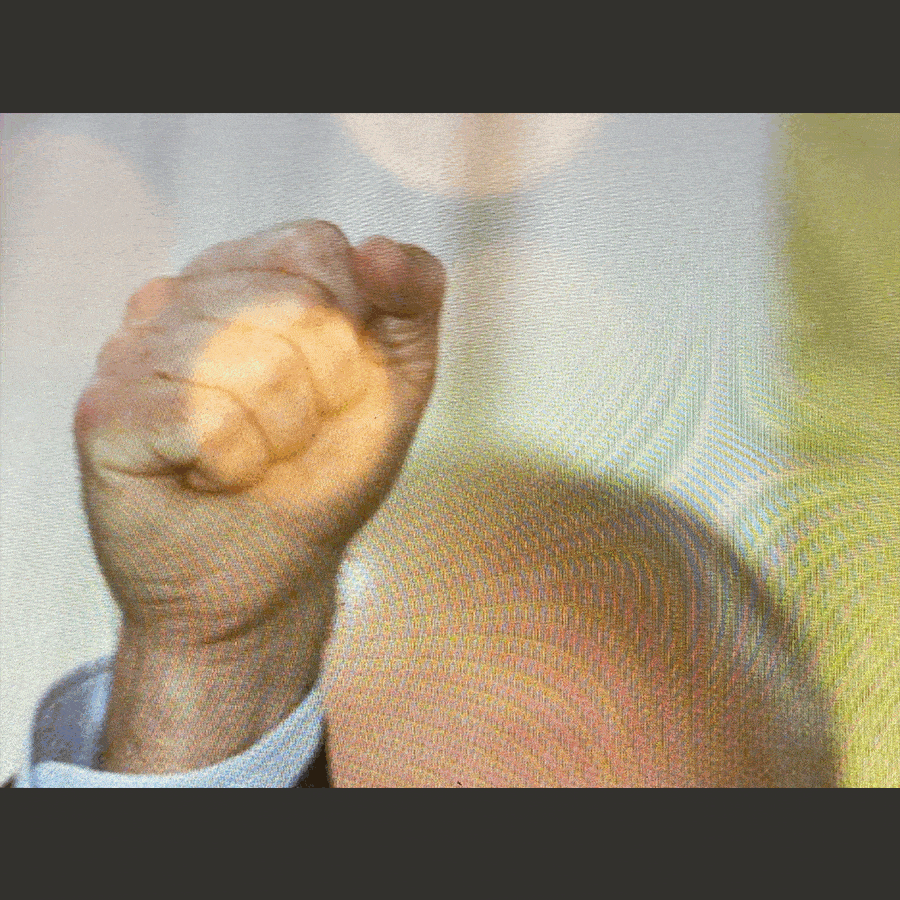
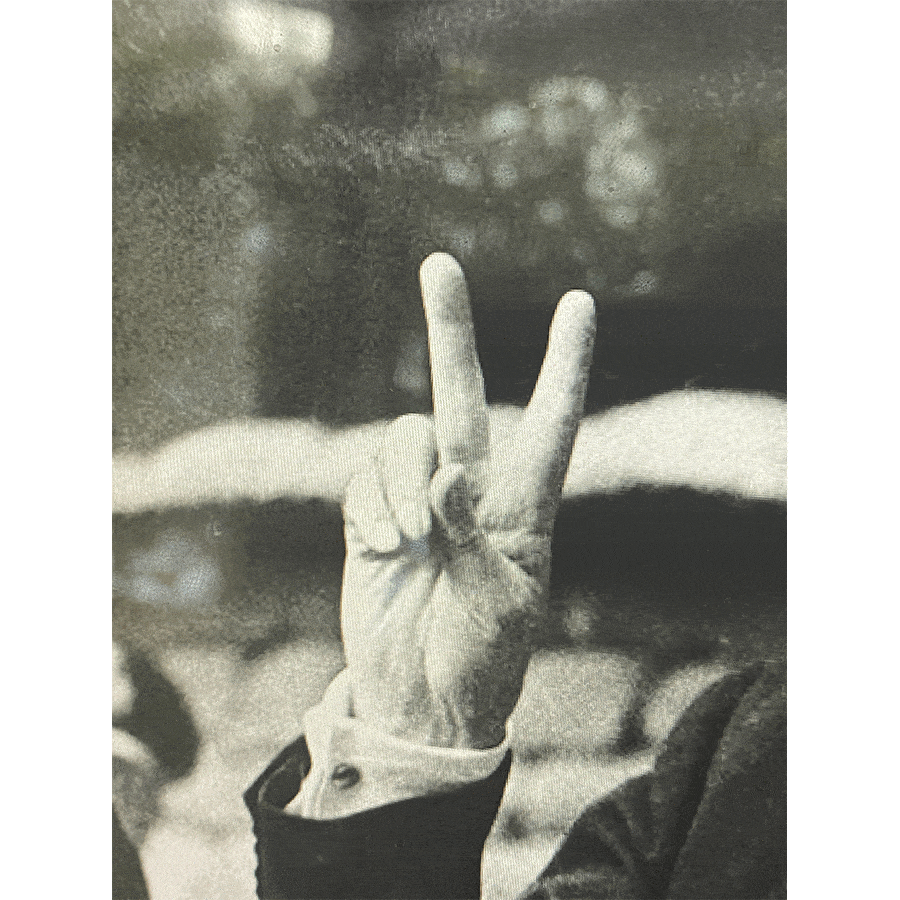
For this year’s edition of the Power 100, Abidi was commissioned by ArtReview to produce an expanded version of The Reassuring Hand Gestures of Big Men, Small Men, All Men to frame the list. The work comprises images of the hand gestures of politicians of the twentieth and twenty-first centuries who ‘represent’ different positions across the political spectrum – from Fidel Castro to Donald Trump – yet use the same repertoire to convey their supposedly distinct messages: pointing at, pointing up, saluting, waving, punching and throwing the occasional V-sign. The result renders both the medium and the message redundant, as the endless repetition becomes more like instructions for a global, choreographed folk dance. Or the synchronised performance of a boyband.
The exhibition version of The Reassuring Hand Gestures of Big Men, Small Men, All Men is on show as part of Abidi’s solo exhibition The Man Who Talked Until He Disappeared, at the MCA Chicago until 5 June. To buy a copy of the Power 100, click here.
